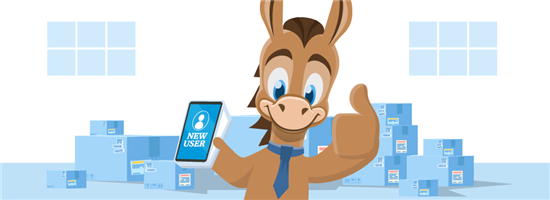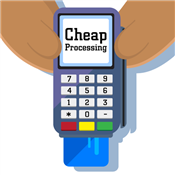10 Cheapest Ways to Take Credit Card Payments
Taking credit card payments is crucial, but unnecessary fees can destroy your profits. Here are 10 of the cheapest options to reduce processing costs.
 |
Let's face it. Plastic has become king.
71% of customers prefer using debit card or credit card over cash. And 61.4% of people would use a card to pay for a $10 in-store purchase.[1]
In today's world, a business needs to be able to accept credit cards in order to survive. Unfortunately, that means paying credit card processing fees.
While you can't completely avoid them, there are 10 tips to cut down on processing costs.
- Avoid Tiered Pricing
- Opt for Interchange-Plus Pricing
- Don't Sign Up for Processing Through Your Bank
- Start with a PSP for New Businesses
- Subscription Pricing Is Cheapest for Large Businesses
- Watch Out for Hidden Fees
- Encourage Debit Card Payments
- Focus on Chargeback Prevention
- Never Lease Equipment
- Reduce Operation Costs with Integrated Payments
Square Reader: Free Mobile Credit Card Reader
- Pay 2.6% + 10¢ Per Swipe for Visa, Mastercard, Discover, and American Express
- Accept Credit Cards Anywhere
- Fast Setup, No Commitments
1. Avoid Tiered Pricing
 |
The tiered pricing model was designed to simplify processing rates. But it actually ends up being more confusing and expensive.
The concept is simple. Instead of the literally hundreds of different interchange rates, you get just 3 flat rates depending on the type of card used:
- Qualified rates for debit cards and non-rewards cards
- Mid-qualified rates for standard rewards cards
- Non-qualified rates for premium cards and card-not-present transactions
A lot of providers advertise low qualified rates to attract merchants. But the problem is that most transactions will fall under the mid-qualified and non-qualified tiers, which have much higher rates - as much as 4%!
The provider is the one who categorizes the transactions. And since the interchange rates and markup are blended, the provider can hide just how much profit they're really making.
2. Look for Interchange-Plus Pricing
Instead, look for a provider with interchange-plus pricing. This is when the interchange fees and processor markups are clearly separated.
An example is Helcim, which charges Interchange rate + 0.40% + $0.08 (for processing up to $50,000/mo; discounts for larger volume) per swipe. The plus (0.40% + $0.08) is the provider's markup.
This pricing is transparent and fair. You know exactly what the provider's commission is over the actual cost. Using the above example, on a $100 sale, the provider markup is only 48 cents.
Different cards have different interchange rates (which are set by Visa, Mastercard, Discover, and Amex). Certain types of cards have lower interchange rates, so the overall processing fees come out to be cheaper.
3. Don't Sign Up for Processing Through Your Bank
Most major traditional banks offer merchant account services. If you already have business banking, it may seem easier to just partner with your bank to keep all business stuff under the same roof.
But banks generally have higher processing fees. Plus, the pricing is not transparent. You usually need to talk to an agent for a quote. This makes it hard to know if you're really getting a fair deal.
You'll get lower rates from an independent merchant account provider. Look for a provider with fees clearly listed right on their website.
Another advantage is that independent providers are dedicated to just one thing - providing you with processing services. They have more expertise to offer the support and resources you need.
4. Start with a PSP for New Businesses
 |
For new businesses or very small businesses, the cheapest way to accept credit cards is through a third-party processing services provider (PSP) like Square.
They allow you to take cards without a merchant account. You can get started very quickly with no approval process.
PSPs offer simple flat-rate pricing. For example, Square charges 2.6% + $0.10 per swipe. This rate is higher compared to interchange-plus pricing. But there are no extra monthly fees, so it often still comes out to be cheaper for small businesses.
You only pay when you process a card. If you don't have any sales, you don't pay anything. This makes PSPs ideal for:
- New businesses just starting out
- Micro businesses with less than $5,000 in sales per month
- Seasonal businesses with sporadic sales
- Small mobile businesses, like market vendors and pop-up shops
5. Subscription Pricing Is Cheapest for Large Businesses
For larger businesses steadily processing at least $10,000 or more a month, a subscription-based provider will be the cheapest option.
Just like interchange-plus, the provider markup is clearly spelled out. But it's just one small fixed per-transaction fee. There's no percentage markup, so you can keep more of your revenues. On top of that, there's a monthly membership fee for the service.
For example, Payment Depot charges Interchange rate + $0.18 for online transactions and Interchange rate + $0.08 for in-person, plus monthly plans, starting at $79 for companies that process up to $250,000 in transactions per year.
For high-volume businesses, the 0% markup will more than justify the monthly subscription fee. Payment Depot estimates that members save an average of $400 a month in processing fees. [2]
6. Watch Out for Hidden Fees
Besides the processing fees, providers can also charge a whole host of other fees. Some make sense, like a monthly fee for access to a payment gateway or a virtual terminal. But junk fees can add up to hundreds of extra dollars that are completely unnecessary.
Here are some fees you should NEVER have to pay:
- Account setup fee
- Upgrade fee
- Early termination fee
- Batch fees
- Statement fee
- IRS reporting fee
- Next-day funding fee
- PCI compliance fee
- Customer service fee
- Inactivity fee
Again, it's important to look for a provider who's transparent with their fees. If you are being charged any of these fees, it's easy to avoid them by switching to another provider.
7. Encourage Debit Card Payments
The cheapest way to accept cards is to process debit cards.
Debit cards have much lower interchange fees because of the lower risk of fraud. The typical interchange rate for debit cards is just 0.5%, while credit cards are around 1.7% - 2%.
On a $20 purchase, a debit card will cost you just $0.10, compared to $0.40 for credit cards. That's a huge difference that will definitely add up.
If you're a small local shop with a loyal customer base, give a friendly reminder that debit cards will help you stay in business. A lot of people would be happy to support their favorite stores.
8. Focus on Chargeback Prevention
Chargebacks can cost a small business a lot of lost revenue and stress. With chargeback fees and loss of the sale, you can easily lose twice the sales amount with every fraud dispute.
About 2.59% of transactions result in a chargeback. And on average, businesses lose 4.4% of revenue to chargebacks.
It's best to prevent fraud before it happens. Here are some things you can do:
- Verify your customer's identity with photo ID
- Ask for the CVV code
- Use an address verification service. This verifies that the billing address matches the address on file on the cardholder account.
- Sign up for prevention alerts. If you're notified of a suspicious order, you can proactively issue a refund to avoid a dispute.
56% of merchants who used chargeback prevention alerts were able to resolve at least 30% of disputes before it became a costly chargeback.
There's another good reason to cut down on fraud. If you have a lot of chargebacks, you can be labeled a "high risk" merchant - which means higher processing rates.
9. Never Lease Equipment
Leasing equipment may seem like a good deal. For relatively little money upfront, you can get the hardware you need to start taking cards.
But it actually comes out to be WAY more expensive than just buying equipment upfront.
Leasing rates can go up to $100/month per machine over a 2- to 4-year contract period. On the other hand, a credit card machine costs $200 to $600, on average. That means over a 4-year lease, you'll have paid $4,800 for a $400 machine that you don't even get to keep!
Plus, equipment leases usually have separate contracts. They're notoriously hard to break. If you try to get out of it early, you could still be held liable for all the remaining payments.
10. Reduce Operation Costs with Integrated Payments
39% of small business owners spend at least 5 hours a week dealing with payments issues.[3] Imagine what you can do if you put those hours into growing your business instead!
If you're still manually reconciling your transactions and doing data entry, it's time to integrate your payments.
Simply put, integrated payments sync your payment system with other business software. For example, if you use QuickBooks for accounting, your books will be automatically updated with each transaction.
This saves time, reduces human error, and helps you run your business more efficiently. Small Business Digest reported that 91% of small-medium business owners reduced back-office expenses by at least 21% by using integrated payments.
Bottom Line
The cheapest credit card processing for you mostly depends on your business size. In general, interchange-plus pricing will be the cheapest option for businesses. For new and micro-businesses, look to a third-party payment service provider instead.
It's important to choose the right provider with fair, transparent pricing. By avoiding some of these pitfalls, you can save on fees and put more profits back into your business.
References
- ^ "Report on the Economic Well-Being of U.S. Households": Federal Reserve, 2017.
- ^ "How it Works": Payment Depot, 2020.
- ^ "State of Small Business Payments": WePay, 2020.
Anna G is a research director at CreditDonkey, a credit card processing comparison and reviews website. Write to Anna G at feedback@creditdonkey.com. Follow us on Twitter and Facebook for our latest posts.
Note: This website is made possible through financial relationships with some of the products and services mentioned on this site. We may receive compensation if you shop through links in our content. You do not have to use our links, but you help support CreditDonkey if you do.
Not sure what is right for your business?
|
|
|
Answer a few short questions in our credit card processing quiz to receive tailored recommendations to help you keep more profits.
|
|
|














